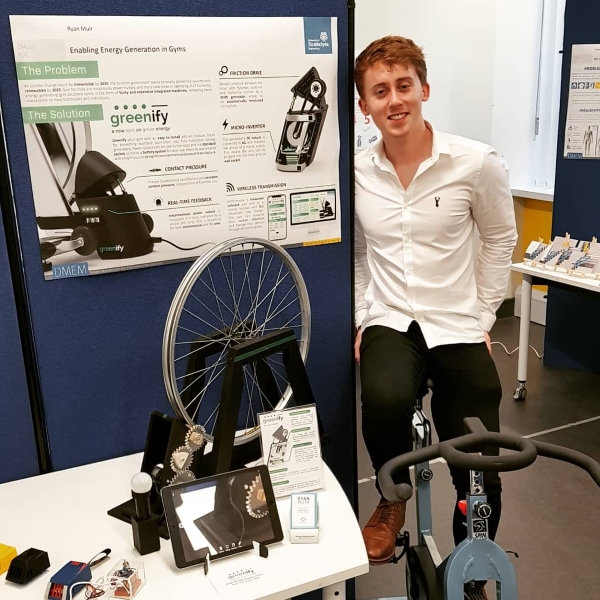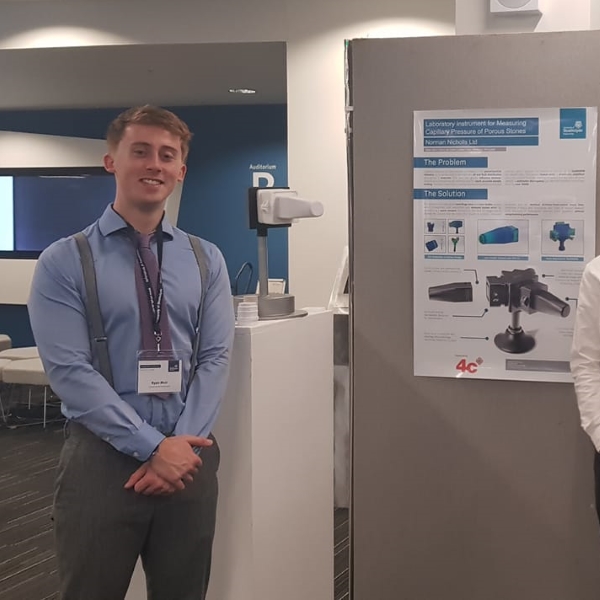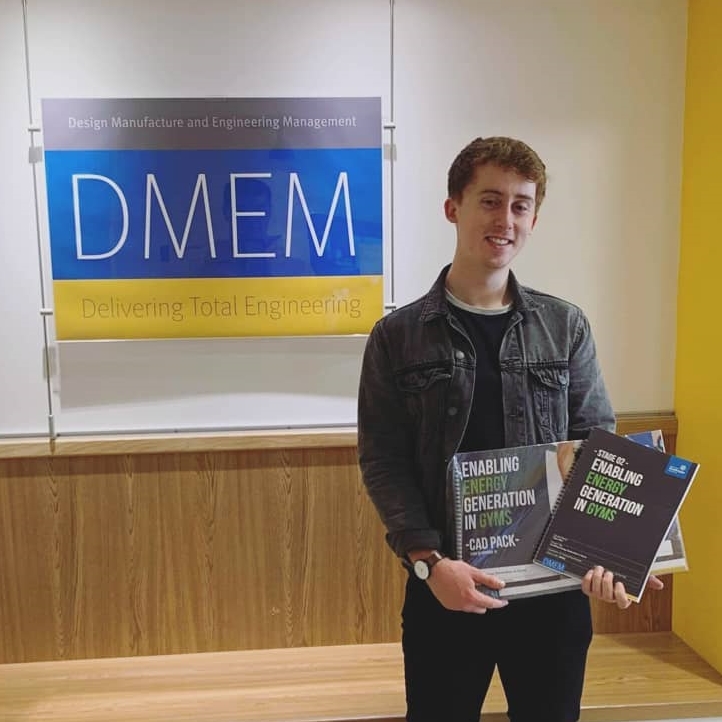What made you look at the University of Strathclyde as an institution option?
When I was in 4th year of high school, my favourite subjects were Graphic Communication and Design & Manufacture.
One day, an ex-student came to do a STEM talk about her achievements throughout university, and how much she loves her course – Product Design Engineering at Strathclyde. After doing a bit of research to find out what engineering actually was, I knew Strathclyde was top of my list.
Why did you choose to study MEng Product Design Engineering?
I’m an inherently creative person and a very visual learner, so I didn’t perform very well in maths or physics at school. Despite this, ever since that STEM talk, I knew Product Design Engineering was the course for me.
It had the perfect mix of design, engineering, management and entrepreneurship, and only recently have I realised how incredibly valuable it is to employers.
I was determined to get a place no matter what, and that meant I had to complete a physics summer school in 2015 as part of my conditional offer. I think many people would have banked on their second UCAS choice instead. That’s probably my life’s most pivotal point to date.
What has been your favourite module of the degree so far and why?
Definitely my 4th year individual project. I designed an add-on energy generation unit for spin-bikes, and it was the most difficult, work-intensive project I’ve ever taken on.
I loved this module because it’s so different to a standard dissertation – we’re encouraged to use all the knowledge gained in our entire university career to develop a product from concept to reality. I’ve seen first-hand how this project reveals the capability and versatility of DMEM students.

What is it like studying in DMEM?
It’s a great big supportive community. I have friends from several universities, and it’s not very common for a department to have a shared social space for collaborative working. I haven’t stepped foot in the library for 2 years because we have everything we need in DMEM.
The 7th floor studio is one of the only places I can focus properly, maybe the £1 coffee machine might be doing more harm than good.
Did you gain any industry experience as part of your studies?
I haven’t had an internship before, but the 4th and 5th year industrial group projects are unique and incredibly beneficial. My team and I worked with a Stirling start-up to develop an innovative quick-connect system for attaching rock samples to centrifuge rotors.
I also completed an industrial project during my Erasmus semester in Sweden.

What happened as part of the industrial experience?
I never thought I’d be exposed to the oil and gas industry, and I certainly don’t want to pretend I know the first thing about petrophysics. The project was daunting to begin with, but it really emphasises the diversity and adaptability of my degree.
I’ve learned that by applying existing knowledge to problems that seem significantly out of scope, and learning as fast as humanely possible, you’d be surprised what DMEM students can achieve.
Tell us about the saltire scholarship?
The Saltire Scholar Internship Programme, from Entrepreneurial Scotland, matches undergraduates from Scottish universities with companies all over the world. Their mission is to make Scotland the most entrepreneurial society in the world by giving Scottish students a fully-funded career-defining internship which, in-turn, increases the future value of Scotland’s workforce.
A friend who participated in 2018 urged me to apply, and I didn’t take much convincing.
The first stage was a written application, then I was invited to a round of speed interviews which took place in Glasgow. Afterwards, I was able to apply to 3 host companies by sending a cover letter and CV. I was fortunate enough to be shortlisted for an interview with my 1st choice: a medical device start-up company in San Francisco.
What has happened since you applied?
I don’t think it will fully sink in until the plane lands.
From early June till late August, I’ll be going to work for AesculaTech – they’ve developed a smart material that’s a liquid when cold, and a solid when hot.
I’ve seen it referred to as ‘reverse-chocolate’, and you can imagine its vast number of biomedical applications.
Their first product is a treatment for dry eye syndrome (DES), but they plan to use the platform for further amazing environments in the future.
I was initially drawn to AesculaTech because my mum suffers quite badly from DES, and I know all about the shortfalls of current treatments.
I visited San Francisco for a couple of days last year with my family, and from the small pieces that I saw, I know I’m going to love it. Despite its reputation as an American cultural and economic metropolis, the city only has 200,000 more inhabitants than Glasgow. Even still, the Americans have a unique talent for doing things bigger.
I’ve been told to book an Alcatraz tour well in advance – so I’ll get on that after I finish my visa application!
What are your ambitions for the future?
My ultimate goal is to start my own company, either a tech product start-up or a design consultancy. To do so, I need some experience in industry, especially in a small business – which is why a California start-up is perfect for me.
After I complete my masters, I’m torn between aiming for a grad scheme or pursuing a postgrad in the innovation management field.
Would you recommend studying in DMEM?
Given the age we’re required to apply to university in high school, it’s uncommon to find a student who knows they’ve chosen the right path for themselves. I was asked in my AesculaTech interview to explain a bit about myself and my degree, and I was able to say without hesitation that I love what I do.
If you want to develop one of the most versatile skillsets in the world, study at DMEM.
-Ryan Muir
-min.jpg)
